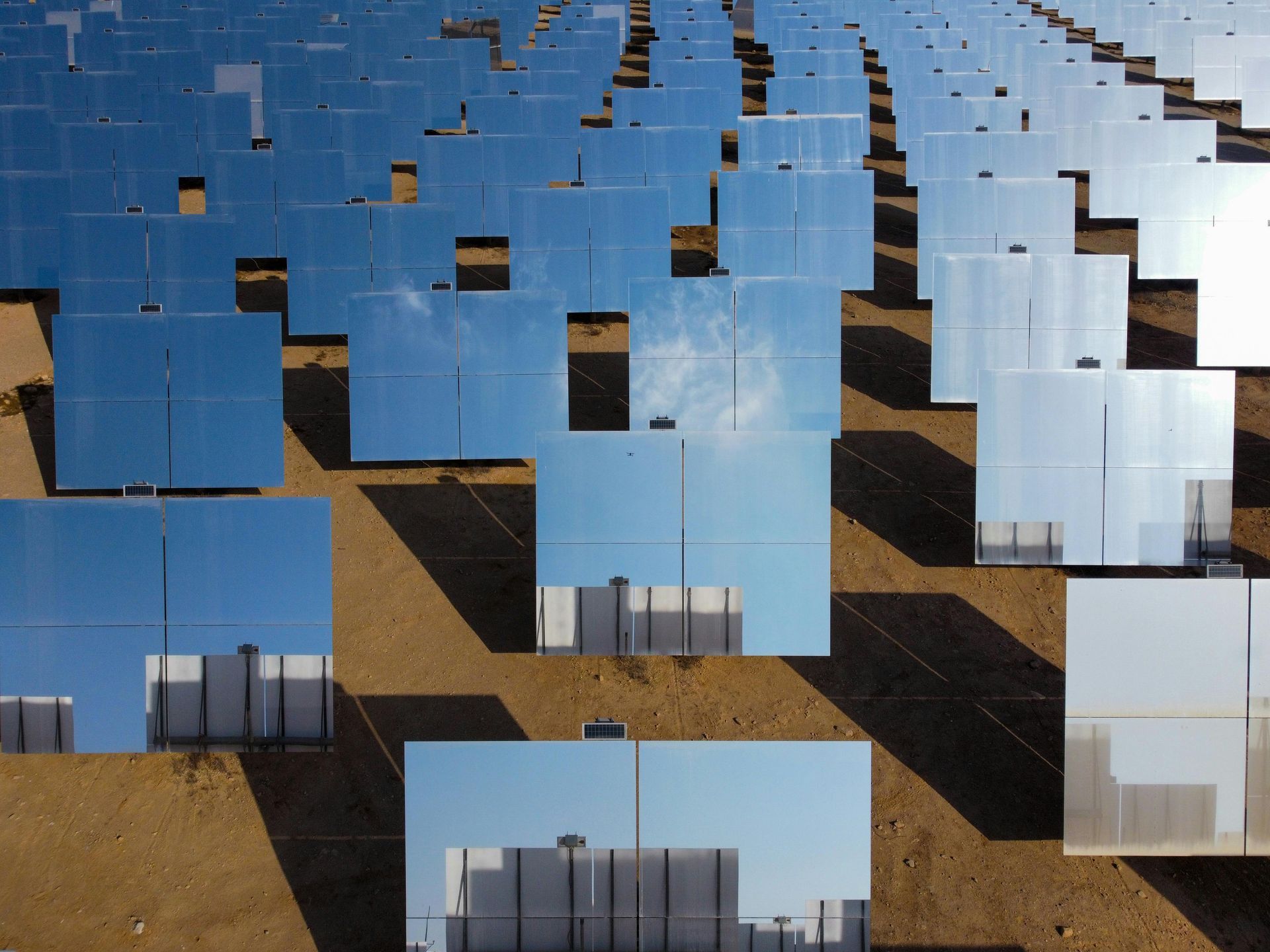Solar Energy in Arizona: A Bright Future for Homeowners

Embracing the Sun
Solar energy in Arizona is gaining momentum, fueled by the state's sunny climate and commitment to renewable energy. Arizona enjoys over 300 sunny days a year, making it one of the best places in the United States for harnessing solar power. This natural advantage has led to a growing trend of solar energy adoption, especially in residential areas, as homeowners seek sustainable energy solutions.
Cost Savings and Economic Benefits
Switching to solar energy can lead to significant cost savings for homeowners in Arizona. Solar power can drastically reduce electricity bills, with some homeowners saving hundreds of dollars each year. On average, Arizona residents who switch to solar can save up to $1,500 annually on their electricity bills. Over time, these savings can lead to a substantial return on investment, making solar energy an economically sound choice for many. For more detailed statistics on solar savings, you can visit EnergySage.
Environmental Impact of Solar Energy
Solar energy is a clean and renewable resource that helps reduce the carbon footprint and reliance on fossil fuels. By transitioning to solar power, homeowners contribute to a more sustainable way of living, supporting environmental conservation efforts. Solar energy also positively impacts local ecosystems and improves air quality, benefiting both the environment and the community.
Types of Solar Solutions Available
Homeowners in Arizona have access to a variety of solar solutions, including photovoltaic (PV) panels and solar thermal systems. Photovoltaic panels are popular for converting sunlight directly into electricity, while solar thermal systems are used for heating water. Each type has its pros and cons in terms of efficiency and cost. PV panels are generally more versatile, while solar thermal systems can be more efficient for specific applications like heating. Experts suggest that photovoltaic panels are often the best choice for Arizona homes due to their adaptability and effectiveness in the sunny climate.
Government Incentives and Support
Federal and state incentives make solar energy more accessible to Arizona homeowners. The federal solar tax credit allows homeowners to deduct a significant percentage of their solar installation costs from their taxes. Arizona also offers state-specific incentives, including rebates and tax credits, to further reduce the financial burden. Homeowners can learn more about these incentives by visiting the U.S. Department of Energy's website.
Impact on Property Value
Installing solar panels can increase the value of a home. Studies show that homes equipped with solar energy systems tend to sell at a premium compared to those without. Energy-efficient homes are appealing to potential buyers who value sustainability and lower energy costs. Real estate experts note that the trend towards eco-friendly living is growing, making solar-equipped homes more attractive in the market.
Case Studies of Homeowners
A Phoenix homeowner who transitioned to solar energy shared their experience, highlighting both challenges and benefits. Initially, they faced hurdles related to installation logistics and understanding the incentives. However, with proper guidance, they successfully implemented a solar solution that significantly reduced their energy bills. The homeowner expressed satisfaction with the investment, citing improved energy efficiency and environmental impact as key benefits.
Expert Insights and Future Trends
Solar energy experts predict continued growth in residential solar power, driven by technological advancements and decreasing costs. Innovations such as more efficient solar panels and energy storage solutions are expected to enhance the viability of solar energy. Arizona, with its favorable climate, is likely to see an increase in solar communities, where entire neighborhoods adopt solar solutions.
Cultural and Geographical Considerations
Arizona's geographical features make it an ideal location for solar energy. Cities like Phoenix, Scottsdale, and Cave Creek are seeing cultural shifts towards eco-friendly living, with residents increasingly embracing sustainable practices. Local events and initiatives, such as solar expos and workshops, promote solar energy adoption and educate the community on its benefits.
Practical Guidance for Homeowners
For homeowners interested in starting their solar journey, it is essential to research and select a reputable solar provider. Factors to consider include the provider's experience, customer reviews, and warranty options. Proper maintenance of solar panels, such as regular cleaning and inspection, ensures optimal energy efficiency and longevity.
Common Misconceptions About Solar Energy
Several myths surround solar energy, such as the belief that solar panels are ineffective on cloudy days or that they are too expensive. In reality, solar panels can generate electricity even on overcast days, and the cost of solar installations has decreased significantly over the years. Experts emphasize the importance of understanding the facts to make informed decisions about solar energy.
The Role of Community and Local Businesses
Local businesses play a crucial role in supporting the solar energy movement by providing installation services and raising awareness. Community initiatives, such as solar co-ops, encourage group purchasing to reduce costs. Partnerships between homeowners and local solar companies facilitate the transition to solar energy, benefiting both the community and the environment.
Challenges and Considerations
Homeowners may encounter challenges when transitioning to solar energy, such as navigating regulatory requirements or dealing with installation complexities. However, these challenges can be mitigated with proper planning and expert advice. Consulting with professionals and understanding the local regulations can help streamline the process.
The Future of Solar Energy in Arizona
The future of solar energy in Arizona looks promising, with predictions of continued market growth over the next decade. Potential policy changes could further incentivize solar adoption, making it more accessible to a broader range of homeowners. Innovation will play a significant role in advancing solar technologies, ensuring that Arizona remains a leader in renewable energy.











